Hong Kong Companies’ Expansion into the Cross-border E-commerce Market: Addressing Online and Offline Challenges
Joint research by Hong Kong Export Credit Insurance Corporation and Hong Kong Trade Development Council
From June to August 2024 in Hong Kong, HKTDC Research conducted a questionnaire survey of companies currently engaged in cross-border e-commerce business and traders planning to develop such business, in order to learn about the current situation of - and future plans for - their cross-border e-commerce business. This article shows the key findings from the company survey section:
Companies looking to capitalise on the available advantages of cross‑border e‑commerce must also deal with a number of online and offline issues. This section discusses the major challenges encountered by Hong Kong companies and the support services they need when developing their cross‑border e‑commerce business.
Product delivery: challenges to offline practices
Regarding product delivery, 38.4% of the surveyed companies cited complicated customs clearance procedures in Mainland China and overseas markets as one of the main challenges they face, while 31.3% mentioned complicated procedures and expensive costs for returning goods. Respectively 29.8% and 29.3% said the difficulties were in managing international deliveries (especially for small orders) and in providing proper packaging for long‑distance deliveries. 27.8% of the companies said the higher delivery costs for small e‑commerce orders were the main challenge.
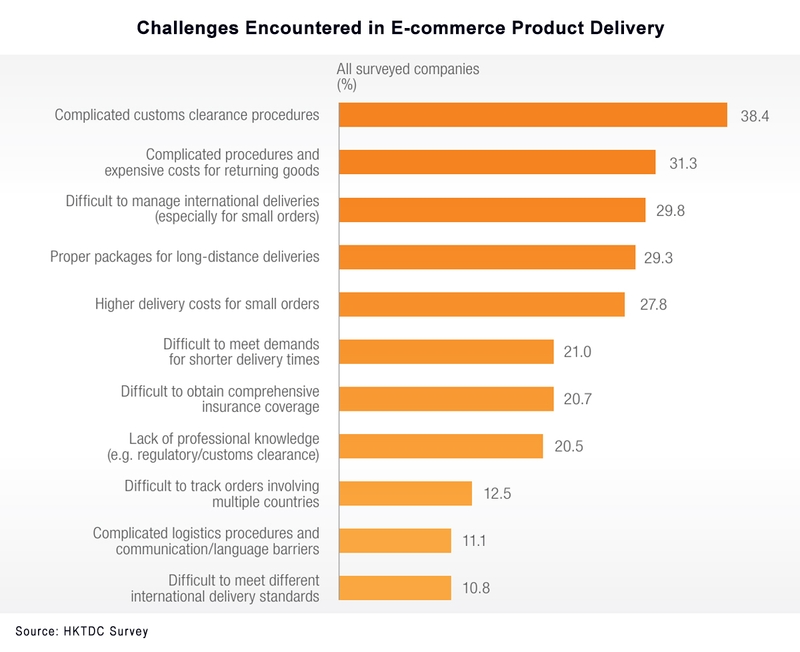
Online payments: problems with platform fees, exchange rates and refunding
More than half (51.1%) said that, when it came to online payments, the main challenges involved third‑party e‑commerce platforms, with several issues being cited, including high commissions, accounts receivable risks and long payment cycles. The second greatest challenge is exchange rate fluctuations and high exchange costs (46.6%). Even when direct payment service providers are used, 31.3% of the surveyed companies said they had to deal with high commissions and accounts receivable risks. In addition, 28.4% complained of the expensive costs of refund arrangements.
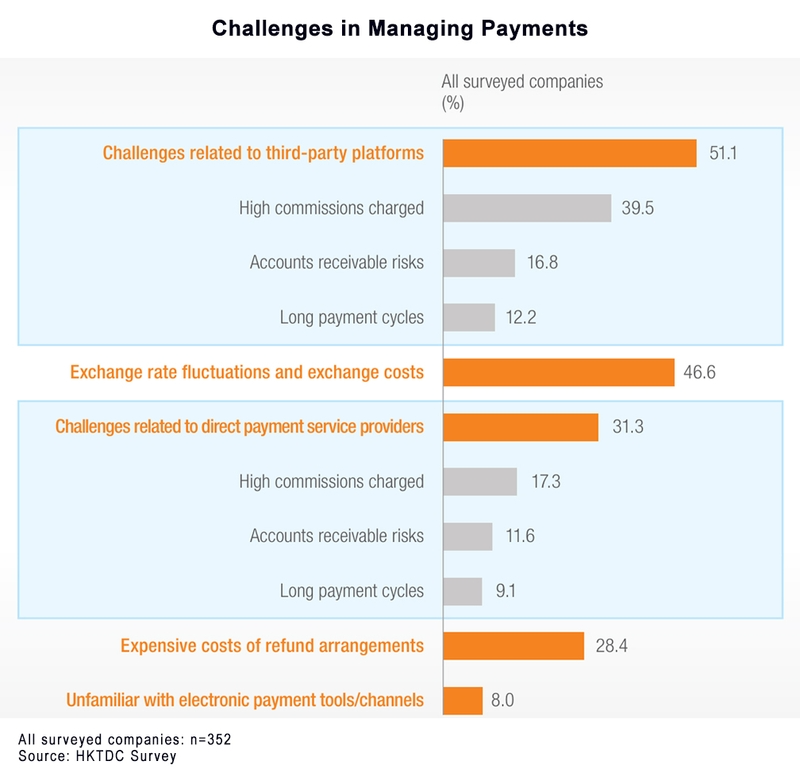
Market, regulatory and financial challenges
Market challenges can be major obstacles to expanding cross‑border e‑commerce business. Among all those in the survey, 84.9% said that they had encountered difficulties in this area, mainly involving fierce market and price competition. Some said they had also encountered other problems such as insufficient market demand and difficulties in effectively managing and maintaining brand loyalty and customer experience.
The next biggest obstacle is regulatory challenges (54.0%), including difficulties in complying with different e‑commerce rules and regulations in different markets. Companies are also worried about the difficulties involved in ensuring compliance with various product standards and being unsure about handling online infringement/intellectual property rights issues.
Capital‑related financial challenges cannot be ignored either. 41.2% of the surveyed companies expressed concerns about this, including unreliable returns from cross‑border e‑commerce and the high financial costs associated with expanding cross‑border e‑commerce business.
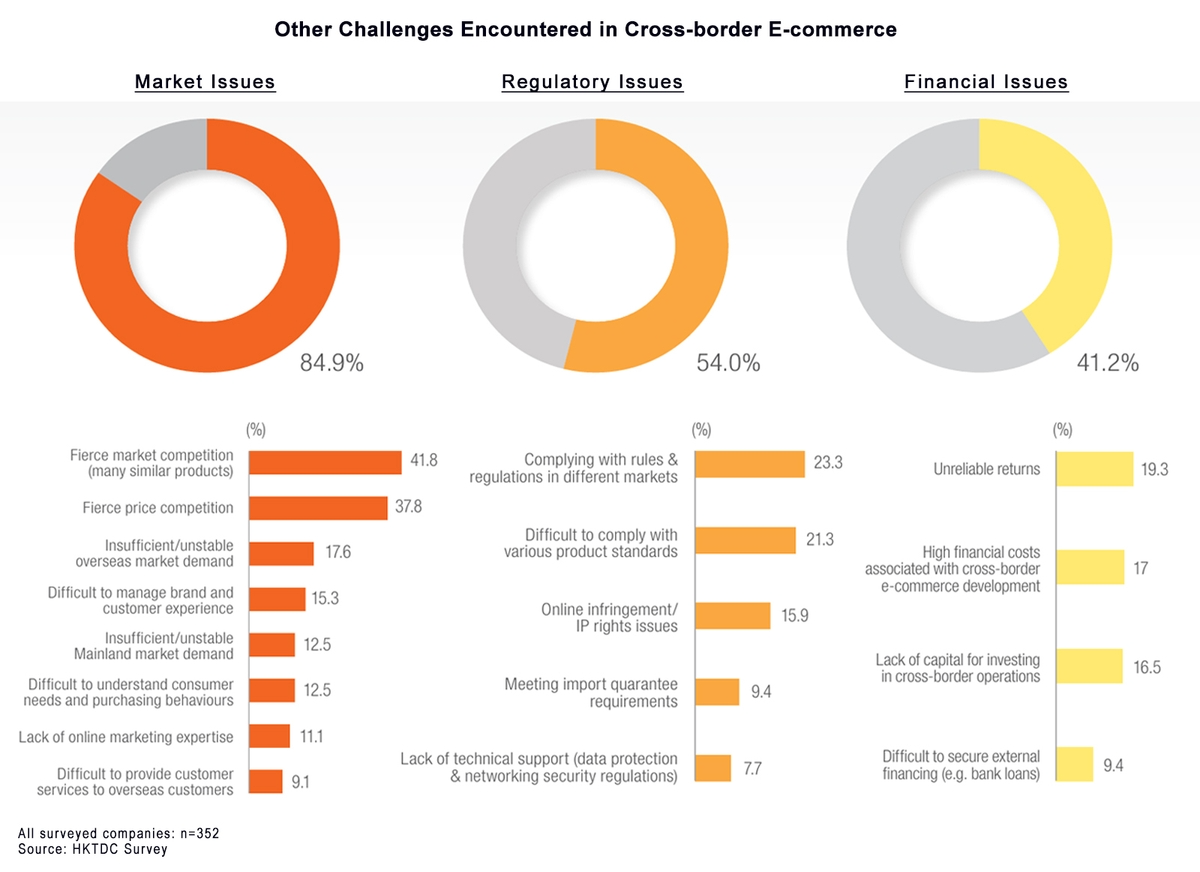
Smaller companies tend to feel financial pressure more directly. Worries about unreliable returns and the lack of capital for investing in cross‑border operations were more prevalent among the smaller businesses in the survey.
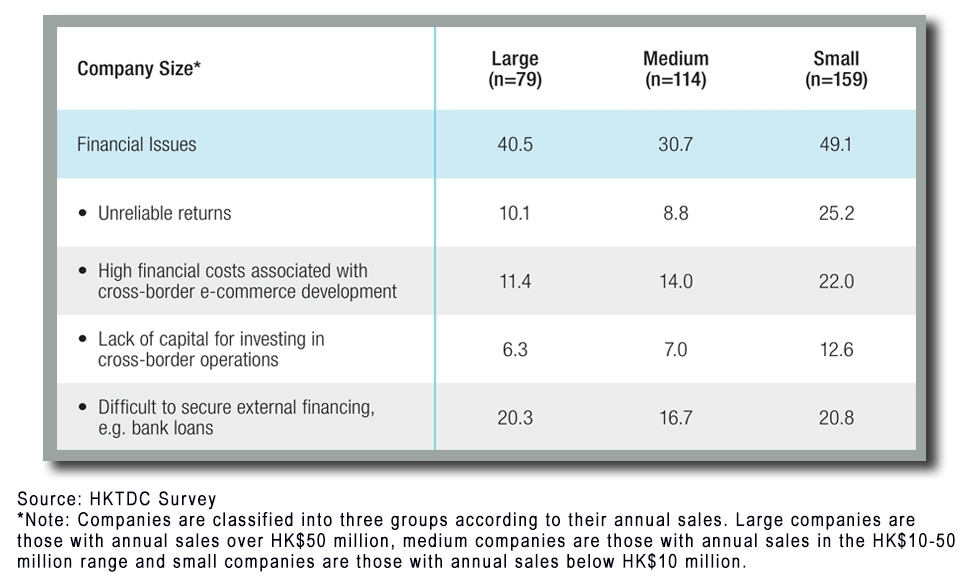
Needs in support services
Companies operating cross‑border e‑commerce need help in many areas to ensure the smooth running and growth of their business. This help includes professional services, marketing services, logistics services, as well as consultancy services and product testing support. The support service most wanted by the companies in the survey was risk management insurance, such as the provision of cargo insurance and the assumption of payment risks (this was cited by 39.8%). This was followed by e‑commerce marketing services (34.4%) and logistics services (33.5%).
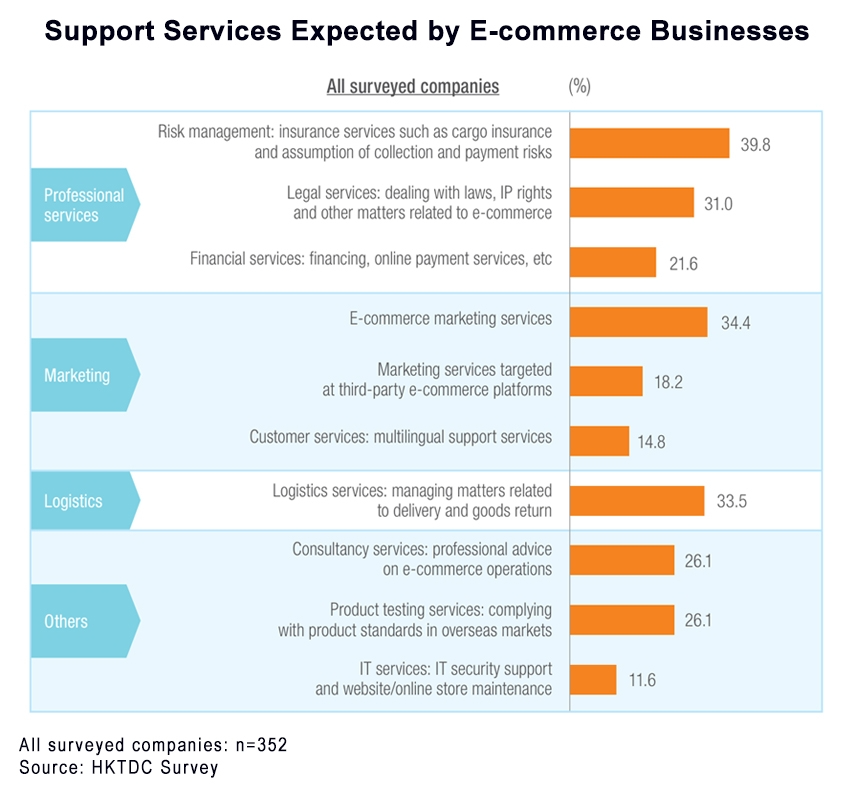
Medium and large companies are keener than small companies on risk management and legal support. In contrast, small companies tend to be looking to obtain support for e‑commerce promotion to grow their cross‑border business. They also have a significantly higher demand for f inancial support than medium and large companies do.
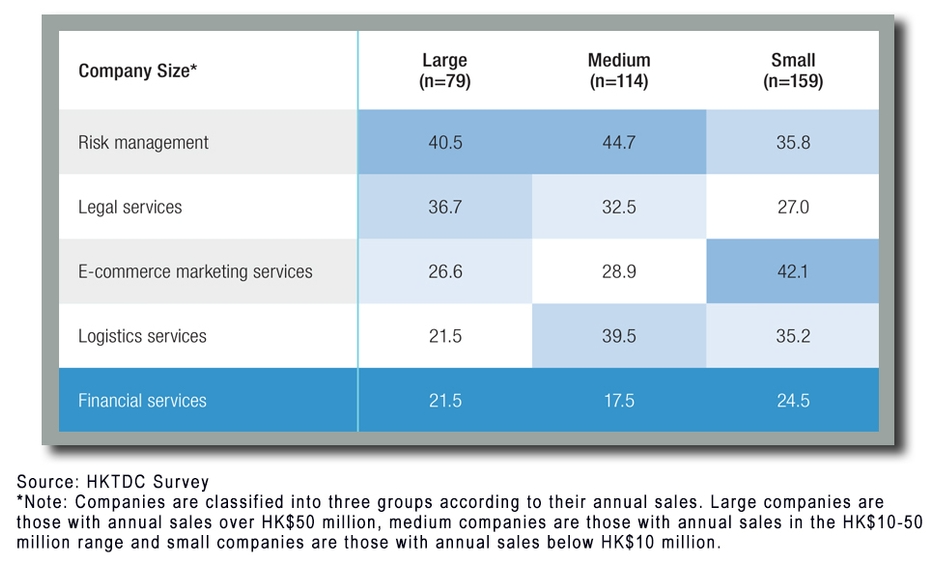
This article forms part of a joint study conducted by Hong Kong Export Credit Insurance Corporation and HKTDC: “Unleashing the Lucrative Potential of Cross-border E-commerce for Hong Kong Traders (Company survey and expert opinion)”






















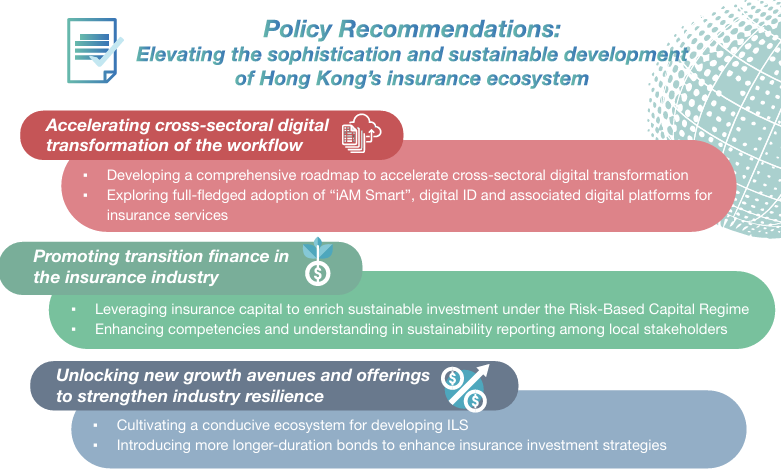
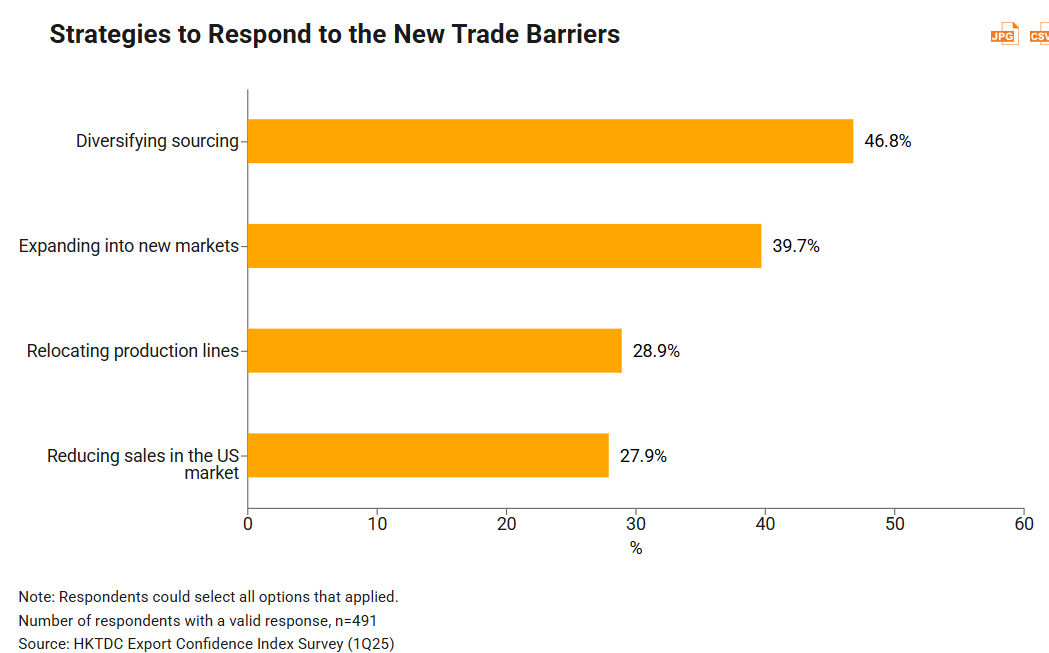





























First, please LoginComment After ~